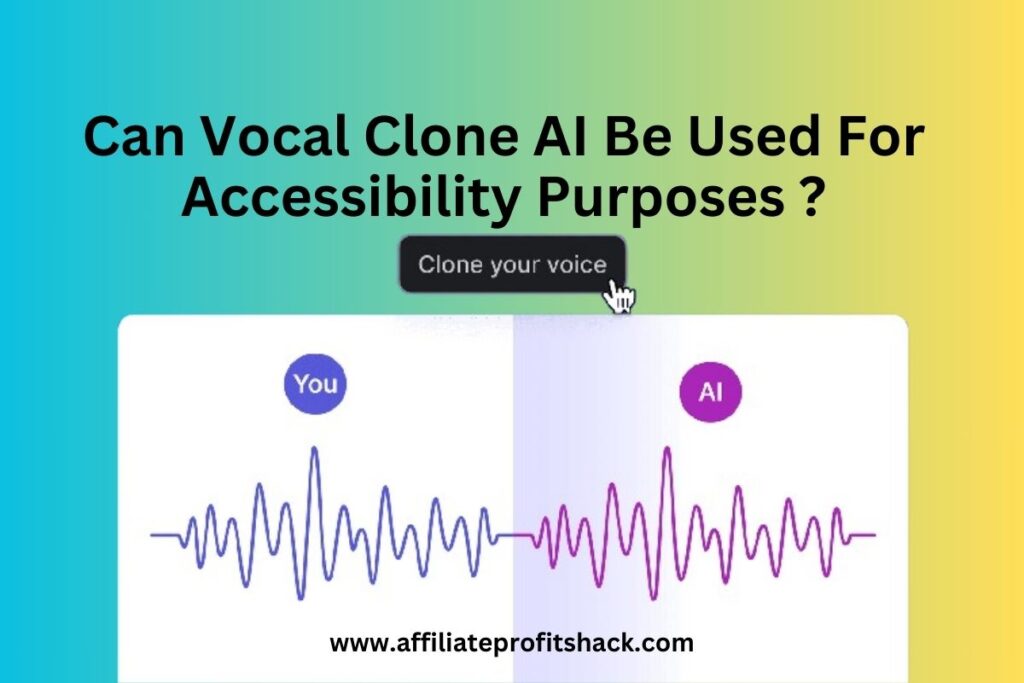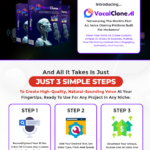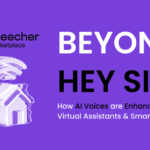In the realm of technology, innovation often marches hand-in-hand with accessibility. The latest frontier in this convergence is vocal clone AI. This groundbreaking technology, once primarily associated with entertainment and impersonations, is now poised to revolutionize the lives of individuals with speech disabilities.
Imagine a world where those struggling to articulate their thoughts can seamlessly communicate through a voice that sounds unmistakably theirs. This future is no longer a distant dream; it’s a reality that vocal clone AI is rapidly bringing closer. Let’s delve into the fascinating potential of this technology to empower and bridge the communication gap for those who face challenges in expressing themselves.
My Proven Way to Make $100-$200 Per Day With 0 Investment – Watch THIS FREE Video to START >>

Understanding Vocal Clone AI
Vocal clone AI, a fascinating intersection of technology and linguistics, is essentially a digital replica of a person’s voice. It’s a sophisticated system that can learn the nuances, patterns, and characteristics of a specific voice, allowing it to generate speech that is virtually indistinguishable from the original.
The process of creating a vocal clone involves several key steps. Initially, a large dataset of voice recordings is collected from the individual. This dataset should encompass a diverse range of speech patterns, including different emotions, tones, and speaking styles. Using advanced machine learning algorithms, the AI system analyzes these recordings to identify the unique characteristics of the voice, such as pitch, intonation, and timbre.
Once the system has learned the voice’s intricacies, it can generate new speech based on textual input. By feeding the AI a text prompt, it can synthesize a speech sample that sounds remarkably similar to the original speaker’s voice. This capability has opened up a wide range of applications, from voice synthesis for those with speech impairments to voice impersonation in entertainment.

Click The Link To Buy Vocal Clone AI
Potential Benefits for Accessibility
Vocal clone AI offers a plethora of potential benefits for individuals with accessibility challenges. One of its most promising applications lies in speech synthesis for those with speech impairments. By creating a vocal clone based on their own voice, individuals with conditions like aphasia or stuttering can regain the ability to communicate effectively. This technology can provide a natural-sounding voice that reflects their unique identity, empowering them to engage in conversations, participate in education, and lead more fulfilling lives.
Another significant advantage of vocal clone AI is its potential for text-to-speech conversion. For individuals with reading difficulties or visual impairments, this feature can transform written text into spoken language, making information more accessible. By using a vocal clone based on a familiar voice, such as a family member or friend, the experience can be even more personalized and engaging.
Moreover, vocal clone AI has the potential to revolutionize language access for individuals with hearing impairments or language barriers. By translating text into spoken language in real-time, this technology can facilitate communication between people from different linguistic backgrounds. This is particularly valuable for individuals who may struggle with traditional sign language or rely on written translations.
My Proven Way to Make $100-$200 Per Day With 0 Investment – Watch THIS FREE Video to START >>
Ethical Considerations and Challenges
While vocal clone AI offers immense potential, it also raises significant ethical concerns. One of the most pressing issues is privacy and consent. Obtaining informed consent from individuals whose voices are used to create vocal clones is crucial to protect their personal information and prevent unauthorized use of their voice. This includes clearly explaining the purpose of the technology, how their voice data will be used, and the potential risks involved.
Another major challenge is the potential for misuse and deepfakes. Vocal clone AI can be used to create highly realistic synthetic voices that can be used for malicious purposes, such as identity theft, fraud, or the spread of misinformation. This raises concerns about the potential for harm and the need for safeguards to prevent such abuses.
Despite its promising applications, vocal clone AI also has limitations. The quality of the generated voice is heavily dependent on the quality of the training data. High-quality voice recordings are essential for creating accurate and natural-sounding clones. Additionally, capturing nuanced vocal expressions, such as emotions and accents, can be challenging for the technology. These limitations may hinder the effectiveness of vocal clone AI in certain contexts, particularly when subtle communication cues are crucial.
Future Outlook and Potential Developments
The field of vocal clone AI is rapidly evolving, with ongoing research and development efforts focused on improving its accuracy and naturalness. Researchers are exploring techniques to enhance the technology’s ability to capture subtle nuances in speech, such as emotions and accents. Additionally, advancements in machine learning and artificial intelligence are expected to further refine the capabilities of vocal clone AI.
The potential for integration with other assistive technologies is another exciting area of exploration. By combining vocal clone AI with speech-to-text software or hearing aids, individuals with disabilities can benefit from a more comprehensive and personalized communication experience. For example, a person with both speech and hearing impairments could use vocal clone AI to communicate with others through text-to-speech conversion, while also utilizing hearing aids to receive spoken messages.
To ensure that vocal clone AI is used responsibly and ethically, it is essential to establish clear guidelines and regulations governing its development and deployment. These guidelines should address issues such as privacy, consent, and the prevention of misuse. By fostering a responsible and ethical approach to the technology, we can harness its potential to improve accessibility and enhance the lives of individuals with disabilities.
My Proven Way to Make $100-$200 Per Day With 0 Investment – Watch THIS FREE Video to START >>
Conclusion
Vocal clone AI represents a significant breakthrough in accessibility technology. By providing individuals with speech impairments the ability to communicate effectively through a natural-sounding voice, this technology has the potential to transform their lives. Furthermore, its applications extend beyond speech synthesis, offering benefits for text-to-speech conversion and language access.
However, the successful integration of vocal clone AI into society requires careful consideration of ethical implications, privacy concerns, and technological limitations. By addressing these challenges and fostering responsible development, we can harness the power of this technology to create a more inclusive and equitable world for all.









